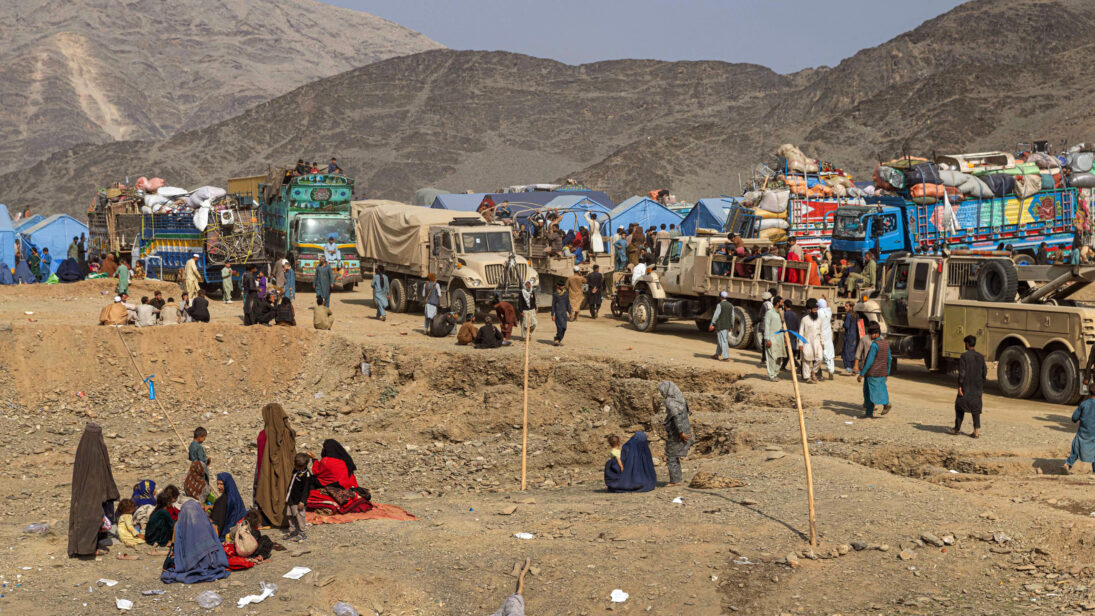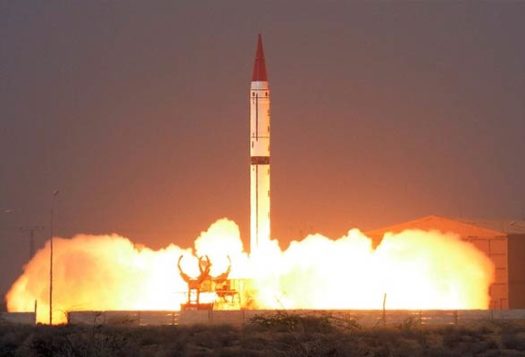
The Islamabad-Kabul relationship is currently at an all-time low as Pakistan experiences an uptick in terrorist attacks and holds Afghanistan accountable for providing a safe haven to the Tehreek-i-Taliban Pakistan (TTP). To be sure, given their geographical proximity as well as shared cultural, ethnic, linguistic, and religious affinities, Pakistan and Afghanistan have always maintained a fundamentally complex yet interdependent bilateral relationship. Despite brief intervals of stability, historical ties between the two countries have been strained and uneasy at best, and the current circumstances remain no different.
The roots of these strained relations lie in historical bilateral irritants, primarily centered on Afghanistan’s non-acceptance of the border, unfulfilled expectations on both sides, and the fact that both have viewed the relationship largely through a security-focused lens. Consequently, other contours of the bilateral relationship have failed to evolve, resulting in the limited nature of the relationship. However, their ties are now at a crossroads—both sides would have to face truths and current realities to create pathways for a holistic bilateral reassessment if they want a stable long-term relationship.
Impact of TTP’s Resurgence on the Bilateral Relationship
When the Taliban returned to power in August 2021, Pakistan played a significant role in the evacuation process and in engaging with the Taliban regime, resulting in several bilateral visits and an increase in trade. However, the relationship once again became a casualty of deep-rooted grievances, primarily driven by unmet security expectations and ongoing concerns over the presence of terrorist groups such as the TTP. The first reported attack by the TTP since the Taliban took over occurred on August 27, targeting a military post in Lower Dir District, where one Pakistani soldier was killed.
The TTP’s resurgence has not only amplified security challenges for Pakistan but has further strained the already fragile bilateral relationship with Afghanistan. Islamabad sees the Taliban’s approach as rather indifferent and callous in effectively curbing the TTP’s activities, thus deepening Pakistan’s frustration.
These unresolved issues, coupled with a persistent lack of trust, have consistently undermined efforts to build a more stable and multifaceted bilateral relationship. It is important to recognize that unless a concerted effort is made by Kabul and Islamabad to address these irritants, the relationship will remain strained, regardless of which political party or group holds power on both sides.
The legality of the Pakistan-Afghanistan border, often referred to as the “Durand Line,” is a settled issue and accepted as a recognized border by the international community. However, successive Afghan governments,’ including the Taliban regime’s, reluctance to accept the border, and its subsequent mismanagement and exploitation by militant groups has made it a contentious issue, further exacerbating bilateral tensions with Islamabad. While Afghanistan has acknowledged the legality of its borders with other neighboring countries, such as Turkmenistan, Uzbekistan, and Iran, it has not extended the same acknowledgment to Pakistan. This inconsistency is rooted in unfounded historical grievances lacking legal legitimacy, which only perpetuate bilateral tensions that are detrimental to both countries and the broader region. The security of the Pak-Afghan border has been outsourced to militant groups, whose actions have undermined the vital interests of both countries. This troubling pattern persists even today.
The Taliban’s return to power in August 2021 coincided with the resurgence of the TTP, which has significantly complicated bilateral ties. The TTP, which had been weakened by Pakistani military operations, has found new momentum under Taliban rule, as they have sought refuge and operational space in Afghanistan to recuperate and reorganize themselves to launch violent attacks on Pakistan. Moreover, in November 2022, after the TTP unilaterally ended a ceasefire with the government of Pakistan, the security situation sharply deteriorated, with the TTP targeting both security and civilian forces.
The TTP’s resurgence has not only amplified security challenges for Pakistan but has further strained the already fragile bilateral relationship with Afghanistan. Islamabad sees the Taliban’s approach as rather indifferent and callous in effectively curbing the TTP’s activities, thus deepening Pakistan’s frustration. It views the Taliban’s approach as less a matter of capacity and more a reflection of unwillingness and lack of political will to address the growing security threat, undermining trust and cooperation between the two nations.
The Taliban regime has continuously denied the presence of the TTP on Afghan soil. But the fact that they have facilitated dialogue with the TTP leading to a ceasefire and have offered to relocate fighters clearly highlights not only the refuge they have given to members of the TTP but more so the leverage the Taliban has over the TTP. Additionally, despite counterterrorism assurances from the Taliban regime, the U.S. Special Inspector General for Afghanistan Reconstruction (SIGAR) and the United Nations Security Council have both expressed concerns about the Taliban’s tolerance towards these groups, further undermining the regime’s commitments towards counterterrorism. Apart from conducting military operations of its own, Pakistan has repeatedly called for decisive action against the TTP. However, the Taliban regime’s indifference has become the primary source of tension in the bilateral relationship. Pakistan is cognizant of the potential limitations the Taliban may have in countering the TTP due to fears that the TTP may align with the Islamic State Khorasan Province (ISKP), as they have in the past. But this is a very shortsighted approach because inevitably, it is a matter of time before the TTP turn against the Taliban, posing an even greater threat to their rule.
Moreover, while domestically, the Taliban have managed to achieve some semblance of security, in addition to the TTP, the threats emanating from transnational terrorist groups such ISKP, Al-Qaeda, and the East Turkestan Islamic Movement continue to persist. While the Taliban have made efforts to counter ISKP, they have not applied the same level of resolve in addressing the TTP threat, highlighting the clear disparity in approach. The Taliban have adopted a compartmentalized approach by prioritizing the concerns of certain countries over others, particularly towards neighboring states. The Taliban’s selective approach towards these threats is flawed, as security threats are interconnected and affect all countries uniformly, particularly because of their transnational nature.

The Taliban Are At a Crossroad
The Taliban regime faces a very critical yet simple decision. If they aspire to be accepted as a member of the international community, they must adhere to established norms and obligations. These include being a responsible stakeholder and refraining from harboring or supporting terrorist groups—an obligation clearly outlined in the Doha agreement that the Taliban agreed to. Furthermore, the Taliban must decide what is truly in their long-term interest: securing stable governance in a secure and peaceful neighborhood or continuing to appease terrorist groups at the risk of their own survival. The Taliban must recognize that allowing terrorist groups to operate with impunity is detrimental not only to the region but also to their own long-term survival. These groups are transnational and interdependent—if left unchecked, they will eventually target the Taliban.
Afghanistan’s future hinges on its ability to foster a secure environment that prioritizes stability over temporary alliances with militant groups. In this regard, a constructive Pakistan-Afghanistan relationship remains pivotal not only for bilateral ties but also for regional stability. Yet, despite the Pakistan-Afghanistan interdependence, both sides continue to engage in the absence of a mutually agreed comprehensive framework that effectively addresses bilateral issues. In this regard, both must define the parameters of their ties and adopt a multi-pronged approach that addresses all contours of the relationship. While security is a crucial aspect, it should not be the sole focus; other aspects, such as diplomatic, economic, and cultural cooperation, must also be considered to build a balanced and sustainable partnership.
As a starting point, both countries should re-open negotiations on the possibility of a Strategic Partnership Agreement, similar to the one they had initially agreed to in late November 2012, but was never signed due to prevailing tensions. Especially following the Strategic Partnership Agreement signed between Afghanistan and India in 2011, and the Strategic Cooperation Agreement struck between Afghanistan and Iran in 2013, a mutually agreed Pak-Afghan bilateral framework would not only create a structured and reliable mechanism to resolve disputes, but also prevent the all too often counterproductive unilateral actions and ensure consistent and thoughtful decision making in times of crisis.
Focusing on a Holistic Bilateral Approach
Pakistan’s concerns regarding the TTP are valid, and the Taliban must address them not just for the sake of bilateral relations but for the broader goal of regional peace, trade, and connectivity. Given the transnational nature of threats originating from Afghanistan, it is crucial for regional countries to advocate for a robust regional framework or mechanism to engage with the Taliban. By adopting a unified approach, the immediate region would gain a collective advantage to influence the Taliban and press them to fulfill their pledges of reform, whether related to human rights, women’s rights, or counterterrorism.
The path forward lies in mutual recognition, respect for sovereignty, and a commitment to regional peace and prosperity. Only then can both countries forge a productive, stable, and enduring relationship.
Geopolitical realities have changed, and new actors, particularly transnational terrorist organizations, have emerged as significant players. Additionally, in this evolving geopolitical landscape, Pakistan cannot overlook India’s growing influence in Afghanistan and its strategic interests. Both Pakistan and Afghanistan must recognize these evolving realities and take proactive steps to build a stable and secure bilateral relationship. Pakistan and Afghanistan complement each other in terms of bilateral and transit trade; hence, focus should be on depoliticizing trade and creating economic interdependence, which can play a crucial role in reducing the chances of conflict. Therefore, as difficult as it may seem, the focus needs to be on a holistic bilateral approach. The path forward lies in mutual recognition, respect for sovereignty, and a commitment to regional peace and prosperity. Only then can both countries forge a productive, stable, and enduring relationship.
Also Read: India’s Approach to Taliban 2.0: Cautious and Persistent
***
Image 1: UN Women Asia via Flickr
Image 2: Noorullah Shirzada, AFP via Getty
Views expressed are the author’s own and do not necessarily reflect the positions of South Asian Voices, the Stimson Center, or our supporters.


